The Empower strategy everywhere we serve is to raise up local leaders who can facilitate and teach the material we’ve developed.
Over the years, we’ve been blessed to develop a wonderful relationship with Teen Challenge Kenya, conducting many trainings. (See our other reports on past trainings here.) Teen Challenge is a Christ-based residential addiction rehabilitation program for men and women. (Despite the name, most participants are not teenagers.)
Last month, Teen Challenge hosted both a Level One New Man, New Woman, New Life training, and a NMNWNL Master Class, one week apart.
Both of these trainings strengthened our relationship with this fine organization and reminded us how well this material integrates with the goals of recovery.
The New Man, New Woman, New Life training
Facilitator Elizabeth Nbadi reported the following:
The level one training, conducted in February, included a group of young men and women (4 women and 56 men) were being rehabilitated from different addictions like alcohol, hard drugs, and sex. The group also included the staff of Teen Challenge Kenya lead by the Executive Director, Dr. Emily Obwaka.
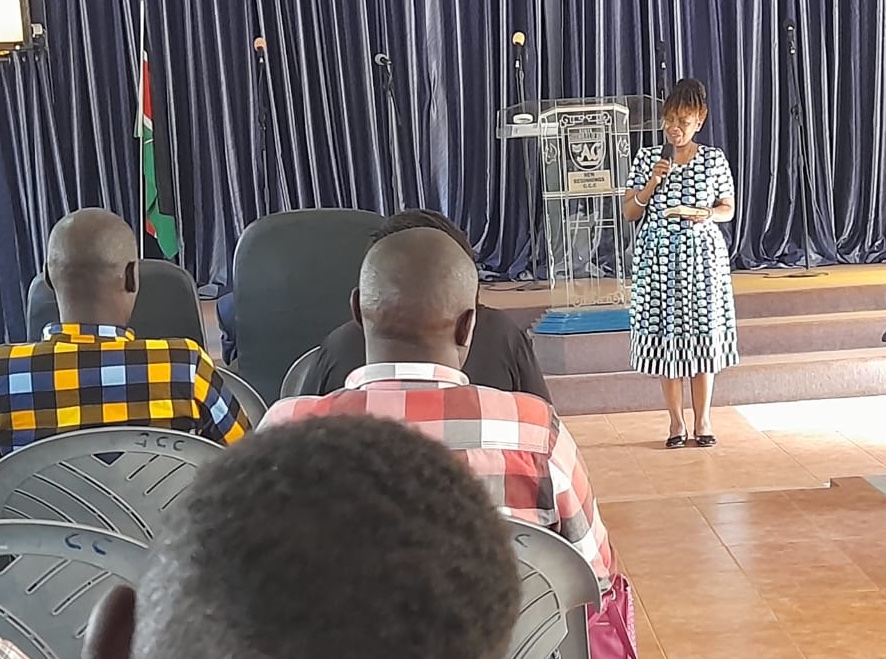
It was facilitated by local leaders who included:
- Elizabeth Ndabi – Lead Facilitator
- Mburu Tuni
- Bishop Pheneas Mwiti
- Nancy Wanjiru
- Rev. Scholah Wayua
The program started with praise and worship by the Teen Challenge team and thereafter, Bishop Pheneas Mwiti gave the devotion. Rev. Charles Kamau provided opening remarks and a warm welcome on behalf of the Executive Director.
Participants went through the NMNWNL curriculum, wrestling with questions that helped them interpret the material for their specific context, including:
- How has Western Culture influenced the family and the church?
- How has western culture influenced the youth?
- The burden of women in your culture
- The burden of men in your culture
Very lively and enriching discoveries emanated from the debates above, especially because the group was highly mixed with people from different cultures.
As the participants studied the material in groups, they discovered for themselves what the Bible has to say about men and women and their relationships. A highlight of the first day, Elizabeth reported, was, “Rich discussions around why God created a point of compromise and whether disobedience makes one evil in cognition that the devil is the fallen prince of this world.”
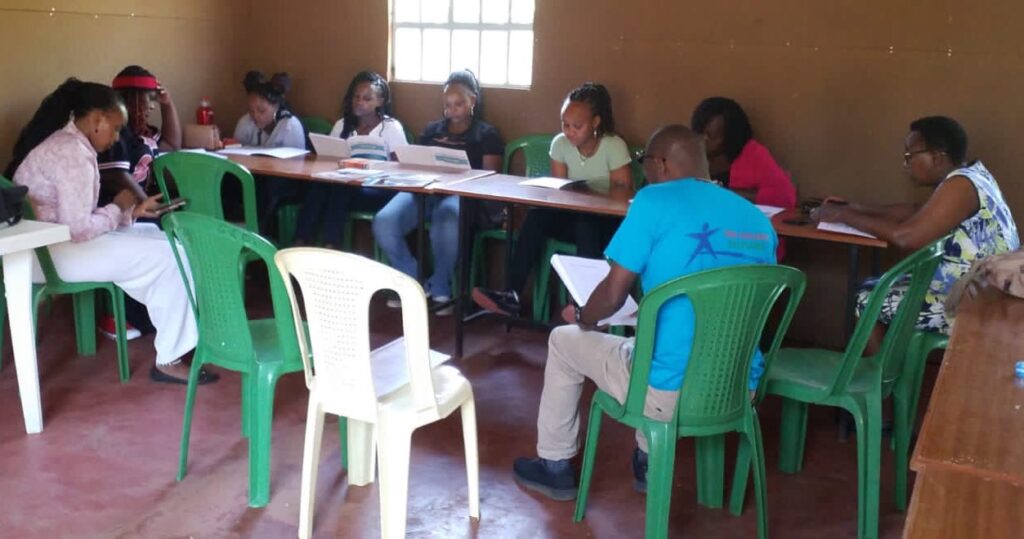
A highlight of day two was, Elizabeth reported, the session on “Honor, Patriarchy and Dominance: Conversations revolved around issues to do with meekness, leaving the old dead and unredeemed culture (from the fall) and taking on the new culture of the redeemed, recognizing power and authority, issues regarding servanthood and being cognizant that God is not a respecter of persons thus we should be humble and that a real man is faithful.”
Another key learning that day: “Christ is and should always be the source of a women’s identity and of her purpose. Who you are spiritually is much more important than who you are physically.”
The final day of the seminar included much more rich conversation and learnings. These included:
- Submission should be because of love – and should be mutual. We should end the struggle to have dominion over each other.
- To head is not a privilege but a sacrifice.
- All, both husbands and wives – to devote and lay down oneself/ sacrifice, to protect and stand by ones significant other, treat equally, tend to one another needs giving them priority, encourage, submit, surrender the ego and need to dominate, honor, be conscious and cautious, realize that both are equal before God, be open with no secrets, adapt, adjust and accept live in harmony and fellowship, knowing full well that God is Love.
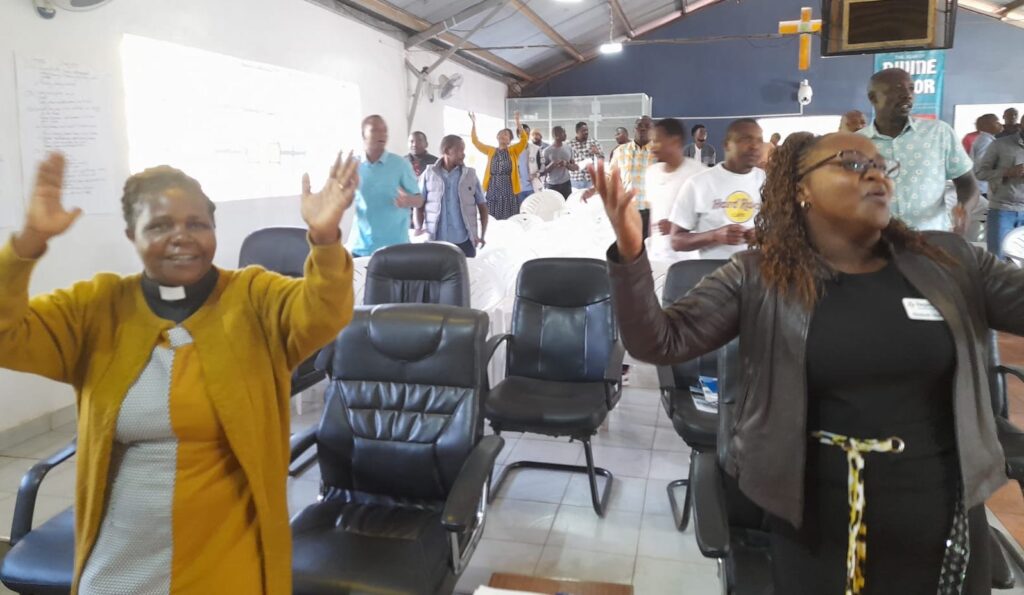
Master Class
Faith Kabiru, one of Frank’s co- facilitators at the Teen Challenge Master Class, shared some insights about the training after her experience of facilitating. Here are a few highlights of her report:
New Man New Woman New Life (NMNWNL) helps people get a biblical discovery of self and relationship. It is anchored on the presentation of the Bible as a three-part story of human relationship with God and with each other: Creation, Fall and Redemption.
Knowing the biblical principles in these three parts corrects myths, misconceptions and bible misinterpretation. It presents liberating truths that illuminate our personal walk with God and our daily lives. The truth shared by Christ to his disciples in John 8:32, “You will know the truth, and the truth will set you free” becomes a reality. Our lives are set free and we excel in our God given purpose and space.
I got an opportunity to be trained in the NMNWNL Level 1, Master Class and Training of Trainers last year at St. Paul’s University, Kenya. This training changed my way of thinking and also my way of doing life. I received clarity and confidence as a woman and this has greatly affected my life as a wife, mother, and woman in church, community and in my workplace. This has enhanced my productivity and given me a lot of positive energy as I engage in my different roles. I am a better person, a better wife, mother and even worker. My highlights were:
- My space as Ezer Kenegdo. – This realization made me recognize my unique contribution as a wife and mother and I am now more intentional and deliberate in the way I do things.
- The difference between work and toil. I am a better and productive worker because work is now worship and not a means of survival. And because of this, my income has gone up effortlessly.
I have also had an opportunity to share the principles I have learnt and continue to learn with various classes here in Kenya and also in Rwanda I have seen how misconceptions and bible misinterpretation has made life difficult for both men and women. Women do not actualize their God given potential and remain consumers. Men become beasts of burden and the intrinsic worth of both men and women is lost.
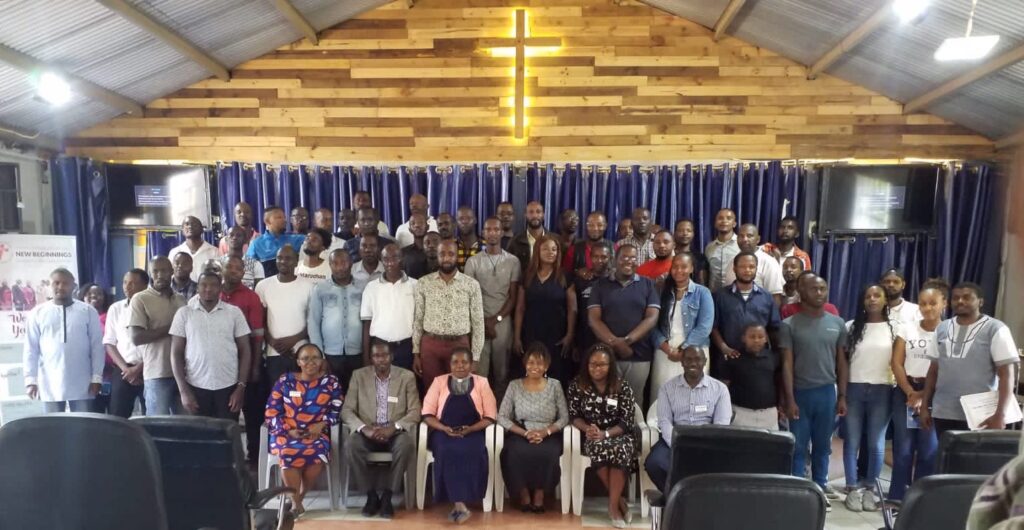 After the training, I saw participants whose lives were built on myths and misconceptions (and whose life decisions had been informed by this misinformation) take a U-turn. I saw participants struggle in the “unlearning” process, and also saw the joy of re-learning new and liberating truths. I have seen how this training has changed the way of thinking of the participants in Africa and specifically in Kenya and Rwanda. Agents of change have been birthed who will go to their respective cultures and reconstruct and shape them from the biblical lenses.
After the training, I saw participants whose lives were built on myths and misconceptions (and whose life decisions had been informed by this misinformation) take a U-turn. I saw participants struggle in the “unlearning” process, and also saw the joy of re-learning new and liberating truths. I have seen how this training has changed the way of thinking of the participants in Africa and specifically in Kenya and Rwanda. Agents of change have been birthed who will go to their respective cultures and reconstruct and shape them from the biblical lenses.
NMNWNL was introduced in this center to help the men and women that are going through the rehabilitation program understand God’s intent for them from the beginning, clarify on the fall, the curse and consequences of the fall; and ultimately introduce to them Jesus Christ who is the ultimate sacrifice and redeemer. Listening to the feedback from the students as they integrated these principles and the application of the same to their lives revealed a deep hollow in their lives that was filled by this material.
The NMNWNL program is an important intervention tool to true and lasting transformation in the Teen Challenge experience. It provides a pathway for the men and women living in addiction to escape from this place of “fall,” and return to God’s original intent through redemption.
The Master Class team is passionate about true and lasting transformation and considers the NMNWNL principles a true tool of transformation. The trainers are a great resource in the transformation journey.
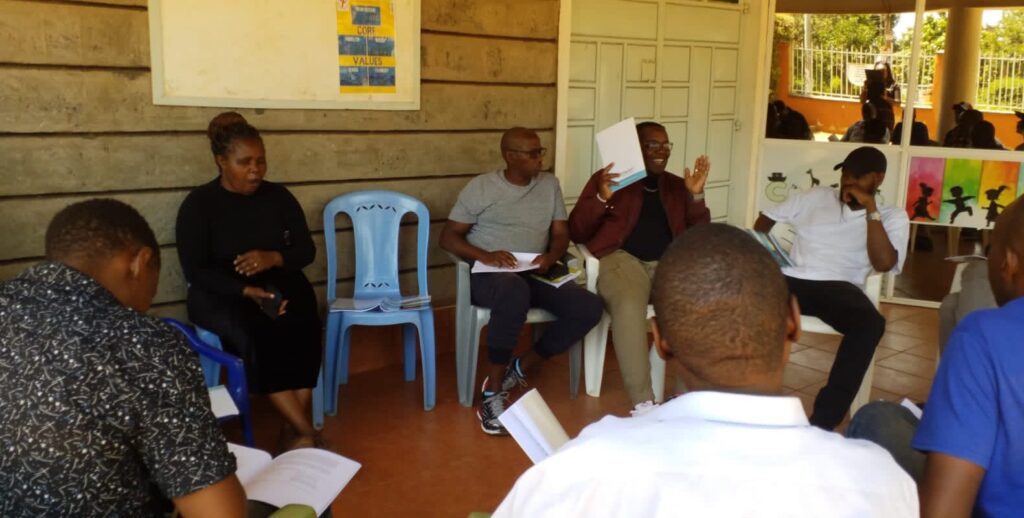
The Director saw a great opportunity in not only training the students but also training the parents of Teen Challenge students. This will be a great avenue to penetrate the families and communities in which these families are coming from. This is an opportunity to change the existing narrative in families and create a supporting and understanding environment for the students when they go back home.
